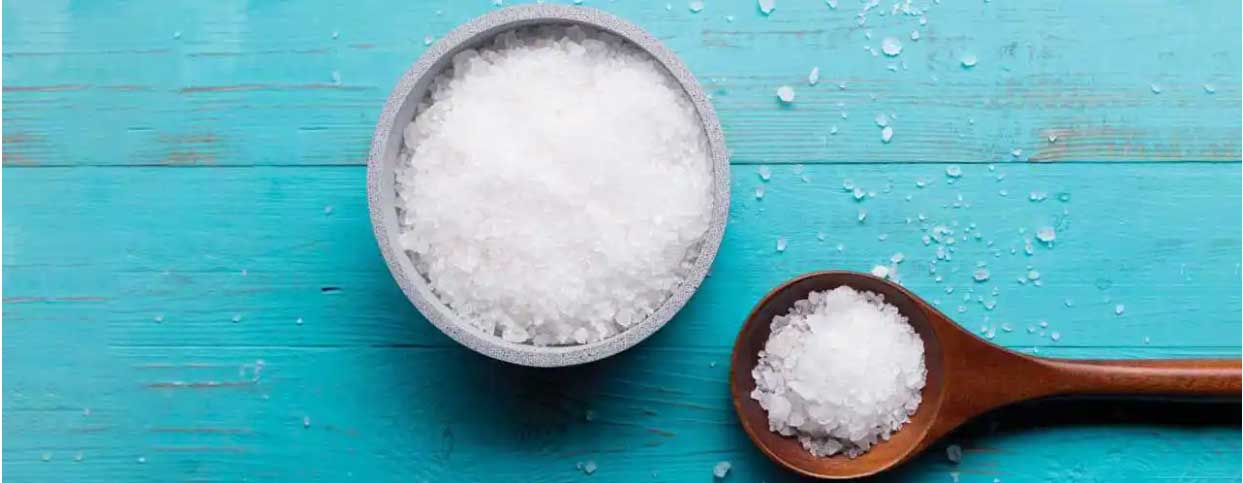
by Eleanor Kellon, VMD
SALT
A universal requirement for horses around the world is salt, primarily for sodium but chloride can also be deficient. The diet of all horses is deficient. Wait. If that’s true, how did horses survive without people to feed them salt? Feral horses make regular sojourns to areas with natural salt deposits where they stock up. Bone has a sizeable reservoir of sodium. In between, homeostatic mechanisms allow them to hold on to electrolytes in short supply. Left to their own devices, feral horses are perfectly content not to move at a pace beyond a walk so do not normally have excessive sweat losses. They are, however, at risk of severe dehydration if anything upsets this fragile balance.
Research has quantified what daily losses of sodium are and we also know how much is lost in sweat. There is no harm whatsoever in supplementing those losses as they occur to prevent the horse from going into negative balance. Doing so ensures optimal hydration, enhances digestion and mineral absorption, maintains normal nervous and muscular function.
OMEGA-3 FATTY ACIDS
In times of the year when fresh grass is not available, the horse's diet goes from one rich in omega-3 fatty acids (about half of their intake) to one with virtually none because these fragile fats do not survive long in cut and baled hay. Grains, brans, etc. are also low in omega-3s.
Omega-3 fatty acids are typically thought of as important to antiinflammatory balance but two studies have also shown supplementation boosts immune system responses in general. They are also pivotal in the development and health of the brain and eyes, and may influence behavior in young horses.
VITAMIN E
Vitamin E, abundant in fresh plant material, suffers the same fate as omega-3 fatty acids in hay. There are very real consequences to immunity, nerve and muscle function if ignoring vitamin E intake. Nutritional Russian roulette is not a good approach.
IN CONCLUSION
Those are the big three. Even if your horse is on a supplemented feed or a balancer you are probably not meeting requirements. A strong case can also be made for <em.selenium, iodine, zinc and copper in most areas but they are not quite as universal as omega-3s, vitamin E and salt.
Cheap Insurance!
This article originally appeared on Uckele Nutrition and is published here with permission.
There are lots of good articles in our section on Health & Education.

































